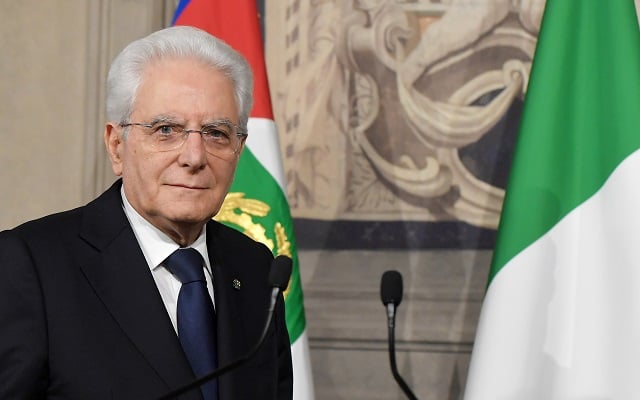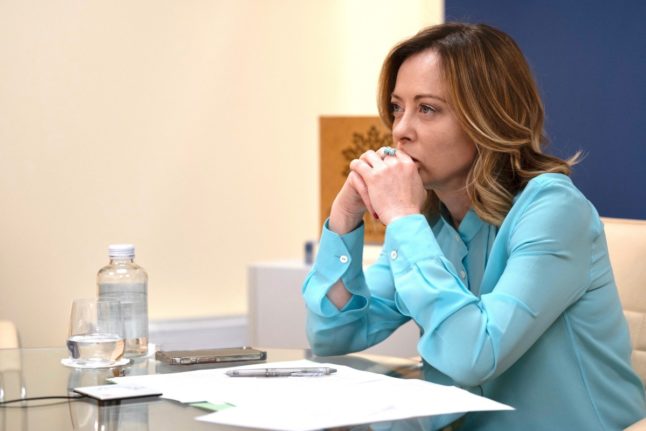After the first of two days of talks, a proposed alliance between the anti-establishment Five Star Movement and opposition centre-left Democratic Party appeared to be gaining traction.
President Sergio Mattarella met with Senate speaker Elisabetta Casellati following the resignation of Prime Minister Giuseppe Conte and the disintegration of Italy's anti-immigrant government.
Political manoeuvring to form a new coalition has already started with Democratic Party (PD) leader Nicola Zingaretti saying that party members were “united” in making a deal with Five Star (M5S).
Mattarella will consider whether a stable coalition is possible. If not he will consider a short-term technocratic government or a snap election, just 14 months after Conte took the helm of the doomed alliance between the far-right League and M5S.
Conte quit on Tuesday after lashing out at Interior Minister Matteo Salvini, who tried to bring down the government to force a snap election looking to take advantage of a surge in popularity for his League party.
“It is irresponsible to initiate a government crisis. It shows personal and party interests,” Conte said in his scathing attack on Salvini in the Senate before resigning.
PROFILE: Italy's PM Conte, the 'Mr Nobody' who found his voice
'Dark clouds'
The move left the eurozone's third largest economy in a political vacuum following a year of nationalist, populist government which angered many other European leaders with its demonization of migrants and attempts to flout EU budget rules.
Investors appeared to believe the crisis would be short-lived with the much watched spread — the gap between German and Italian bond yields — shrinking, indicating the markets do not deem significant risk at this stage.
“If they manage to form a new government, it would be welcomed with some caution by other EU leaders who might see it as an opportunity to avoid a showdown over Italy's budget in the next few months,” said the director of Future Europe Initiative, Benjamin Haddad.
Italy needs to approve a budget in the next few months or could face an automatic rise in value-added tax that would hit the least well-off Italian families the hardest and likely plunge the country into recession.
Mattarella began consultations on a new government at 1400 GMT. The PD and M5S have been at each other's throats for years — but an alliance would see Salvini kicked out of government, a powerful motive for compromise.
After a PD party meeting on Wednesday, leader Zingaretti said lawmakers would form an alliance dependent on five conditions. They include a radical shift in Italy's zero-tolerance policy on migrants crossing the Mediterranean, pro-European policies and a focus on improving living standards.
The PD wants to work with M5S to deliver “a shareable, achievable program by a large parliamentary majority,” Zingaretti said.
Mattarella will give PD and M5S until early next week at the latest to hammer out a coalition agreement, according to media reports.
“The head of state sees dark clouds coming, with Italy already on the threshold of recession and the markets in turmoil,” said Virman Cusenza from the right-leaning newspaper Messaggero.
READ ALSO: Who's running the circus? A illustrated guide to Italy's government
'Back to Europe'
Italy's economy has been caught in a slow or no-growth trap throughout this century. The country's debt ratio — 132 percent of gross domestic product — is the second-biggest in the eurozone after Greece, and youth unemployment is currently above 30 percent.
In a bid to get a PD-M5S alliance off the ground — a grouping previously almost unthinkable — former PD premier Matteo Renzi has said he will not participate. Many in the anti-establishment M5S view him as elitist.
“Populists are effective in election campaigns but a catastrophe once in government! We must bring Italy back to Europe with France and Germany,” Renzi tweeted on Wednesday, calling for a pro-EU coalition.
As Mattarella examines his options, a new government is theoretically possible as soon as Friday.
With signs that a PD-M5S deal was possible, Salvini mocked his former coalition allies saying: “In a week they have gone from the League to Renzi”.
By Duncan Crawford/AFP



 Please whitelist us to continue reading.
Please whitelist us to continue reading.
Member comments